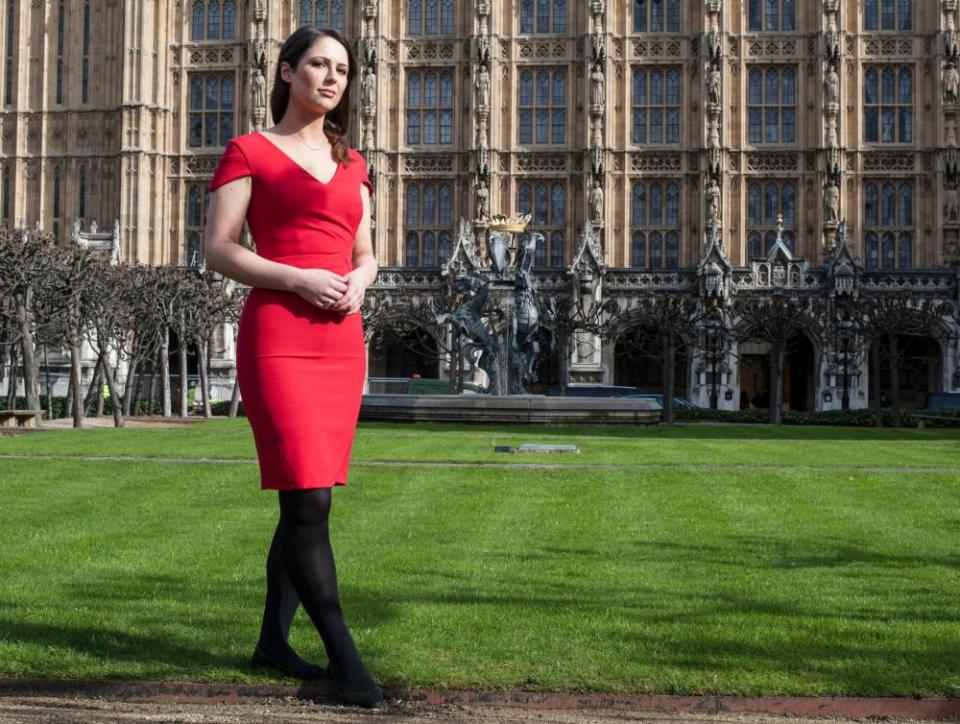High heels row: government response 'a cop-out', says worker

A woman who was sent home from work over her refusal to wear high heels has described the government’s response to an inquiry into sexist dress codes as a “cop-out”.
Nicola Thorp was responding to the news that the government had rejected calls to ban employers from forcing women to wear high heels, arguing that existing laws against sex discrimination already outlaw such dress codes.
Last year, 152,000 people signed a petition calling for a ban on dress codes that force women to wear high heels, after Thorp was sent home from City accountancy firm PwC on her first day as a temporary receptionist for not wearing high heels.
Following the petition, MPs on the women and equalities select committee held an inquiry on workplace dress codes, which highlighted cases where women were made to wear heels even for jobs that included climbing ladders, carrying heavy luggage, carrying food and drink up and down stairs and walking long distances.
The inquiry also heard from women who were forced to constantly reapply makeup, wear shorter skirts or unbutton their blouses.
In a response to the report published on Friday morning, the government said the committee had uncovered practices “in some industries which appear sexist, unacceptable and potentially unlawful”, but that “the scope for redress already exists” under the Equality Act 2010. Staff could complain to their bosses or to a tribunal, the government said.
Under the act, a dress code that makes “significantly more demands” of female workers was illegal, the government pointed out. “We are clear that the law to deal with this sort of discrimination is adequate,” it wrote.
But the government added: “Gender discrimination cannot be tackled with regulation alone,” and encouraged companies to re-examine their dress codes. This summer it will publish guidance on dress codes in the work place.
Thorp told the Press Association: “It’s a shame they won’t change legislation. It shouldn’t be down to people like myself … I do think it is a little bit of a cop-out.”
She added: “As it stands, the Equality Act states an employer has the right to distinguish between a male and female dress code as long as they are not deemed to be treating one sex more or less favourably.
“Unfortunately, because of intrinsic sexism and the way in which business works in the UK, when employers are allowed the freedom to decide what is fair and unfair it tends to be women that lose out.”
The committee called on the government to launch an awareness campaign targeting industries where sexist dress codes are particularly prevalent, including hotels and tourism, travel and airlines, temp agencies, the retail sector and hospitality.
The government rejected calls from the MPs to increase fines for employers who are found by a tribunal to have sexist dress codes, arguing that the current fines of up to £30,000 for the most serious discrimination is “proportionate and fit for purpose”. It also rejected a call to allow tribunals to issue injunctions banning sexist dress codes.
Maria Miller, chair of the committee, said: “Equality legislation is not sufficient to achieve equality in practice. This petition, and the committees’ inquiry, have reinforced the need for effective enforcement of legislation and for employers and employees to be aware of their obligations and rights.
“We welcome the commitments made by the government to increasing awareness of those rights, and hope that the next government will monitor how this changes women’s experiences of the workplace.”

 Yahoo Finance
Yahoo Finance 